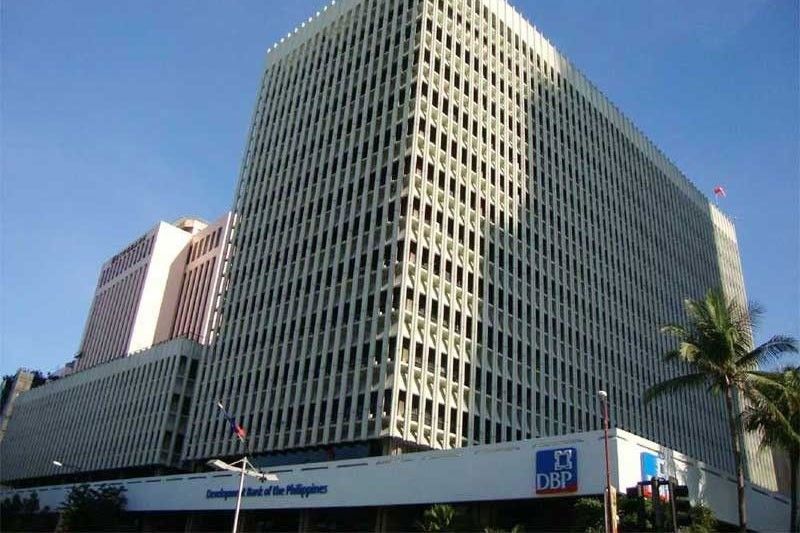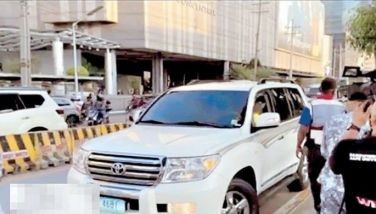House lawmakers struggle to find fault in Lopez loan with DBP

MANILA, Philippines — House lawmakers struggled their way back to finding fault after hitting a stonewall in the second hearing meant to probe loans of the Lopez family sold by state-run Development Bank of the Philippines (DBP) at a discount.
The hearing picked up from last month’s proceedings with House blue ribbon chair Michael Edgar Aglipay of Diwa party-list apologizing to President Rodrigo Duterte for suspending the hearings for 1 month because documents related to the Lopez loans are not available, all because the subject loans were already sold to another bank way back in 2006.
Aglipay was visibly irked. “I’m also doubting whether their compliance is staggered. It’s a very sad fact that we have to undergo this process because documents are given to us in piecemeal,” he said in the hearing.
But resource persons from the DBP had one simple reason not to have all requested loan documents: the loans were already sold to Lehman Brothers, the US investment bank that collapsed during the 2008 global financial crisis, and therefore all files related to it are with them.
What were being asked were documents related to the P9.6 billion in soured loans which DBP was forced to sell to the special purpose vehicle at the time. An SPV is essentially a company that buys out unpaid financial assets with the task of disposing them. Legislators themselves authorized the SPV through Republic Act 9182 of 2002 meant to lift the banking system mired from debts accumulated during the Asian financial crisis of 1997.
Of those loans sold by DBP to the SPV, which in this case was Lehman Brothers, P1.67 billion represented bank funds left unpaid by the Lopez Group of Companies. Duterte has persistently attacked the Lopez family, whose broadcast network ABS-CBN Corp. failed to get a new franchise last year from a Lower House dominated by his allies.
Not only the SPV law
Just like in the first hearing in January, Anakalusugan party-list Rep. Michael Defensor insisted that the sale proceeded irregularly because under the SPV law, DBP was supposed to get a certificate of eligibility (COE) from the central bank to proceed.
“You need a COE to sell that loan to an SPV, which you didn’t have,” Defensor said in Filipino.
But central bank director Dante Malimban, who was present at the hearing, said SPV was not the lone route for asset sales. In fact, he said banks only accessed SPV to avail themselves of tax perks in making the asset transfer, but if they chose not to get incentivized, other prevailing laws would apply.
“The idea of SPV is to attract liquidity. But then, there is one if the bank would not make use of the perks, they can take another route, like the civil code, other statutes. They are not limited,” Malimban said.
Indeed, under Section 39 of the Corporation Code alone, corporations like banks are allowed to dispose of their assets upon approval by their Board of Directors. A similar provision in assets disposition can be found in the Civil Code, which DBP officials said during the first hearing served as basis for selling the Lopez family's bad loans.
Yet Defensor was unconvinced even by regulators themselves. He said that while other laws allow such sales to proceed, “sales should not be to an SPV.” This is quite unclear, since an SPV is just like any other company where assets can be sold to, and registered with the Securities and Exchange Commission.
Shortchanged?
Apart from Defensor, Sagip party-list Rep. Rodante Marcoleta also tried to insinuate irregularity, this time saying that in selling the entire P9.6 billion in unpaid loans to Lehman at a lower amount, the government through DBP suffered losses. Ako Bicol party-list Rep. Alfredo Garbin Jr. agreed. “But you cannot deny that there were really losses on the part of government. Since of the P9.6 billion, you only got P3 billion,” Garbin said.
However, DBP vice-president Romeo Aguilar said that if the bank did not sell those loans, which had no chance of getting paid anyway, the lender would be in much worse financial problem. For the loans, he said, “they’re paying for caretakers, they’re paying for taxes, yet they are not earning.” Hence, the most logical thing to do was to sell them and remove them from the balance sheet.
“We have to clean our books essentially and from the proceeds of those sales to the SPV money, turn around this money, relend it and earn,” he said.
However, as in typical practice, no buyer would buy soured loans at book value, that is not attractive, hence the discount when it is sold. “My understanding on the SPV law is it is expected. The losses to the banks transfer to sale under the SPV law, that is expected,” Aguilar said.
DBP President Emmanuel Herbosa backed this up. “This SPV enabled banks to sell this to Lehman Brothers who were willing to buy the garbage. Now we were able to recover when we sold 64%,” he said.
“We were able to save 64% instead of zero loss,” he added.
A similar law to SPV was signed by Duterte on Tuesday, the Financial Institutions Strategic Transfer (FIST) Act. Under this bill, FIST corporations, like SPVs, will buy out bad debts currently piling up on banks because borrowers battered by the pandemic are unable to pay them up. The goal is the same: remove the burden of bad loans from lenders so that funds used to cover losses from these loans are lent out instead.
FIST was a priority legislation and considered a stimulus measure by the Duterte administration.
- Latest
- Trending




























